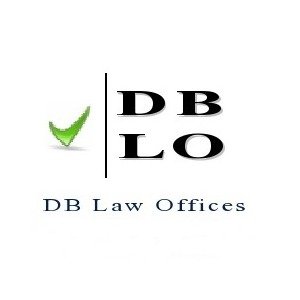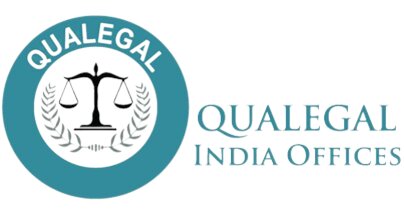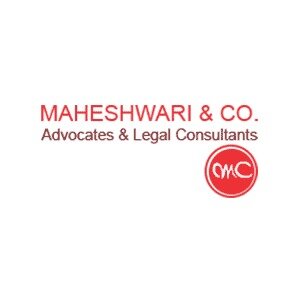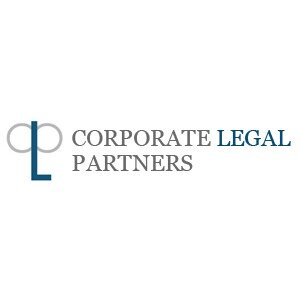Best Bankruptcy & Debt Lawyers in New Delhi
Share your needs with us, get contacted by law firms.
Free. Takes 2 min.
List of the best lawyers in New Delhi, India
India Bankruptcy & Debt Legal Questions answered by Lawyers
Browse our 2 legal questions about Bankruptcy & Debt in India and read the lawyer answers, or ask your own questions for free.
- Loans
- Currently I am multiple unsecured loans. Due to mental health issues I lost my job and all assets. So should I go for Individual bankruptcy?
-
Lawyer answer by Quartz Legal Associates
Based on the facts shared, it is explained that at present, individual bankruptcy in India is not governed by the Insolvency and Bankruptcy Code (IBC) because the provisions relating to ordinary individuals have not yet been implemented by the Government....
Read full answer - Sir, I have to take my payment from my customer party & he is not paying
- Sir, I'm doing textile business & have supplied fabric to my party amt is 4,12,536/00. My customer is not giving payment still he is capable.
-
Lawyer answer by Quartz Legal Associates
Based on the facts stated, it is my considered opinion that you have supplied fabric worth ₹4,12,536 to your customer in the ordinary course of your textile business, the goods have been duly delivered and accepted, and despite being financially...
Read full answer
About Bankruptcy & Debt Law in New Delhi, India
Bankruptcy & Debt law in New Delhi is governed primarily by the Insolvency and Bankruptcy Code (IBC), 2016. This legislation was enacted to consolidate and amend laws relating to reorganization and insolvency resolution of corporate entities, partnerships, and individuals in a time-bound manner. The law aims to balance the interests of all stakeholders, including the debtor and creditor, by facilitating resolution of distressed assets. New Delhi, being a commercial hub, sees many cases related to insolvency and debt recovery, and the legal framework here is designed to handle such issues efficiently.
Why You May Need a Lawyer
Individuals or businesses in financial distress often seek the help of a lawyer to navigate the complexities of Bankruptcy & Debt law. Common situations requiring legal assistance include:
- Filing for Bankruptcy: The process can be intricate and involves filling paperwork, representing oneself in court, and understanding the ramifications.
- Debt Recovery: Creditors seeking to recover loans may require legal advice to ensure compliance with legal procedures.
- Debt Restructuring: Companies looking to restructure their debt to avoid bankruptcy may need legal counsel for negotiation and drafting agreements.
- Dealing with Creditors: Individuals may need assistance in negotiating with aggressive creditors or dealing with harassment.
An experienced lawyer can provide valuable guidance, ensuring that the rights of the party they represent are protected while facilitating a smoother legal process.
Local Laws Overview
New Delhi follows the central guidance of the Insolvency and Bankruptcy Code, 2016 which sets the procedural framework for resolving insolvency. Some key aspects include:
- Corporate Insolvency Resolution Process (CIRP): Allows creditors to initiate insolvency resolution for corporate debtors.
- Individual Insolvency: Provides mechanisms for individuals or partnership firms to resolve insolvency issues.
- Adjudicating Authority: The National Company Law Tribunal (NCLT) in New Delhi adjudicates matters of corporate insolvency while the Debt Recovery Tribunal (DRT) deals with personal insolvency.
- Moratorium Period: The code provides a moratorium period stopping all legal actions against the debtor during the resolution process.
Understanding these aspects is crucial for anyone seeking to engage with the legal processes of Bankruptcy & Debt in New Delhi.
Frequently Asked Questions
What is the Insolvency and Bankruptcy Code (IBC), 2016?
The IBC is a consolidated law that governs insolvency and bankruptcy processes, aiming to resolve distressed assets promptly and efficiently.
Who can file for bankruptcy under the IBC?
Both debtors and creditors can file for bankruptcy under the IBC; corporate entities and individuals can initiate insolvency proceedings.
What is the role of the NCLT in bankruptcy cases?
The National Company Law Tribunal (NCLT) is the adjudicating authority for corporate insolvency cases under the IBC. It oversees the insolvent entity's resolution process.
Can individuals file for bankruptcy in India?
Yes, individuals can file for bankruptcy, and cases are generally handled by the Debt Recovery Tribunal (DRT).
What is the moratorium period?
The moratorium period is a time frame during which all legal proceedings and claims against the debtor are put on hold to enable effective resolution.
How long does the insolvency process take?
The IBC stipulates a 180-day period for the resolution process, which may be extended by 90 days with specific permissions.
What happens if the resolution fails?
If the resolution process fails, the entity may proceed to liquidation, where its assets are sold, and proceeds are used to pay off creditors.
Can a debtor's assets be restructured or sold during the process?
Yes, restructuring of debts or sale of assets can occur during the resolution process to settle debts amicably.
Are there penalties for defaulting on debts?
Yes, failing to comply with a bankruptcy process or resolution plan can result in penalties under the law.
Is legal representation necessary for bankruptcy proceedings?
While not mandatory, legal representation can be beneficial in navigating complex legal procedures and ensuring compliance with all requirements.
Additional Resources
For additional assistance, several resources are available:
- Insolvency and Bankruptcy Board of India (IBBI): The governing body overseeing the process under IBC.
- National Company Law Tribunal (NCLT): Handles corporate insolvency cases.
- Debt Recovery Tribunal (DRT): Deals with individual insolvency matters.
- Professional Legal Firms: Specializing in insolvency and bankruptcy cases.
- Ministry of Corporate Affairs: Provides guidelines and notifications related to bankruptcy laws.
Next Steps
If you find yourself facing financial distress and considering legal action regarding bankruptcy or debt in New Delhi, here are some steps you can take:
- Consult with a Lawyer: Connect with a legal professional specializing in bankruptcy and debt law to understand your options.
- Research: Gather all pertinent information about your financial status to aid the legal process.
- Contact Relevant Authorities: Approach NCLT or DRT for procedural insight or to file a case.
- Consider Alternative Resolutions: Explore options such as out-of-court settlements or debt restructuring.
Engaging knowledgeable legal support at an early stage can significantly influence the outcome of your case in a positive manner.
Lawzana helps you find the best lawyers and law firms in New Delhi through a curated and pre-screened list of qualified legal professionals. Our platform offers rankings and detailed profiles of attorneys and law firms, allowing you to compare based on practice areas, including Bankruptcy & Debt, experience, and client feedback.
Each profile includes a description of the firm's areas of practice, client reviews, team members and partners, year of establishment, spoken languages, office locations, contact information, social media presence, and any published articles or resources. Most firms on our platform speak English and are experienced in both local and international legal matters.
Get a quote from top-rated law firms in New Delhi, India — quickly, securely, and without unnecessary hassle.
Disclaimer:
The information provided on this page is for general informational purposes only and does not constitute legal advice. While we strive to ensure the accuracy and relevance of the content, legal information may change over time, and interpretations of the law can vary. You should always consult with a qualified legal professional for advice specific to your situation.
We disclaim all liability for actions taken or not taken based on the content of this page. If you believe any information is incorrect or outdated, please contact us, and we will review and update it where appropriate.
Browse bankruptcy & debt law firms by service in New Delhi, India
New Delhi, India Attorneys in related practice areas.















